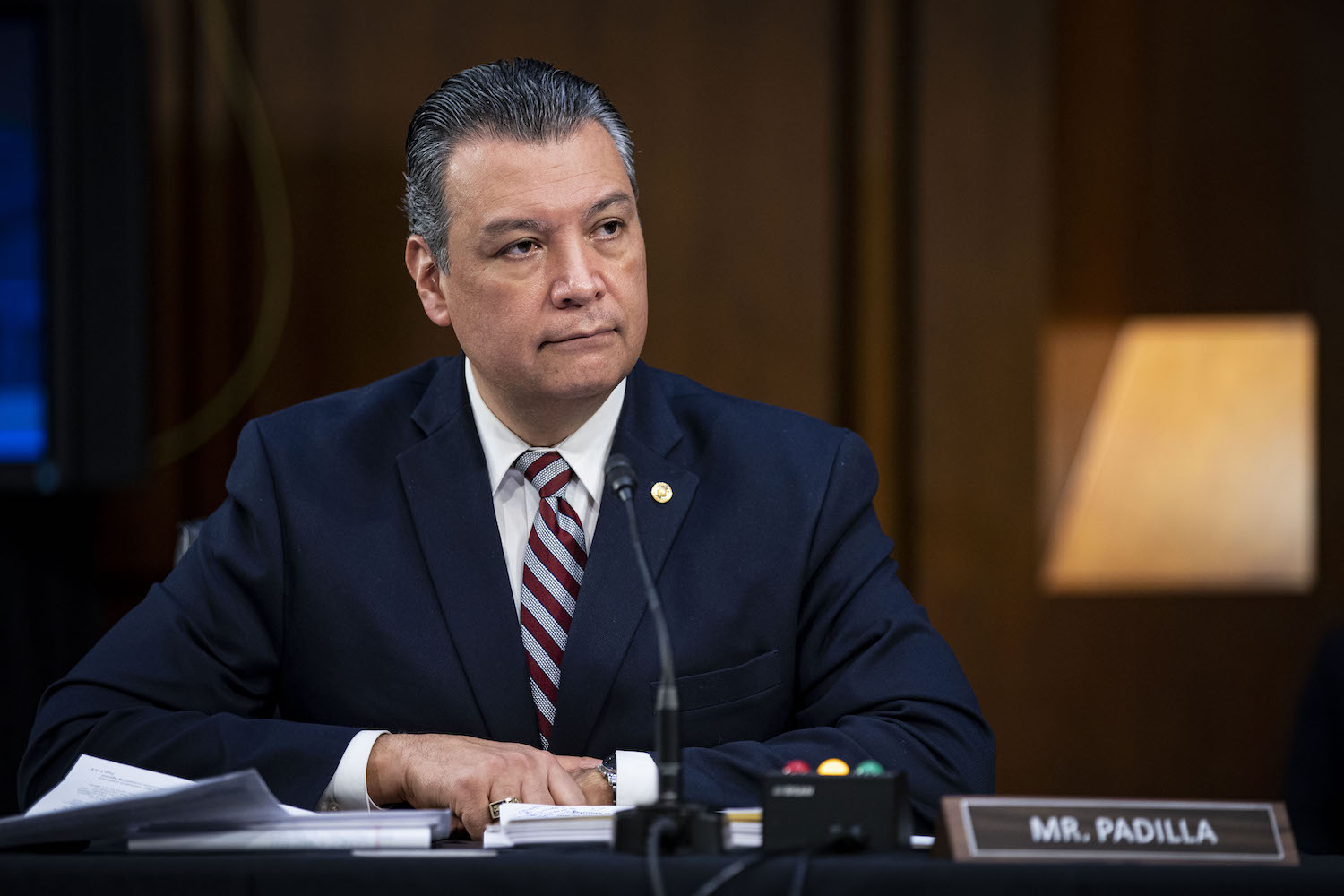
Alex Padilla to AG Garland: BIPOC communities face higher levels of environmental injustice
In a letter, Senator Alex Padilla pushes the DOJ to improve the enforcement of environmental laws.
On April 12, U.S. Senator Alex Padilla D-CA, a member of the Senate Judiciary and Environment and Public Works Committees, shared that he sent a letter to U.S. Attorney General Merrick Garland, calling for the Department of Justice to improve its enforcement of environmental laws, which disproportionately affect Black, Latino, indigenous, and low-income communities.
Padilla specifically tied the situation to his home, by recalling environmental laws in the Central District of California. In his letter, he asks the DOJ to explain its policy regarding the use of non-prosecution agreements that spare corporate polluters of criminal liability.
“Black, Latino, and Native American communities are more likely to live near polluting factories and hazardous waste sites. That's why I'm calling on @TheJusticeDept to hold polluters accountable for environmental crimes that are disproportionately hurting these communities,” Padilla wrote on Twitter on April 12.
His letter referenced a Los Angeles Times report that found Central District prosecutors in California have much more deals with corporations accused of violating environmental laws than in any other office in the country — there are 93.
In his home state, and in California’s Central District alone, 40% of all non-prosecution deals nationwide have been in relation to environmental and wildlife cases since 1990.
Both the Times’ report and Padilla’s letter focus on Exide Technologies.
In 2015, federal prosecutors in Los Angeles made a deal with the CEO of the battery recycling plant that had contaminated thousands of nearby homes with lead dust.
Exide Technologies agreed to demolish its plant and pay $50 million to cover the costs of decontaminating the site and cleaning the pollution from the predominantly working-class Latino community.
In return, prosecutors spared the company and its executives from criminal charges.
RELATED CONTENT
But five years later, Exide Technologies declared bankruptcy and a federal judge allowed it to abandon the decontamination process, where the building still stands.
It “committed decades-worth of environmental crimes by dumping lead and other hazardous contaminants into the air, soil, and water, impacting mostly working-class, Latino communities,” Padilla wrote to AG Garland, seeking the answers to key questions:
What is the department’s policy regarding the use of non-prosecution agreements, and are there written guidelines for prosecutors to follow?
Why has the U.S. Attorney's Office for the Central District of California entered into more non-prosecution agreements than any other office in the country?
How does the Department track non-prosecution agreements?
Black, Latino, and Native American communities are more likely to live near polluting factories and hazardous waste sites.
— Senator Alex Padilla (@SenAlexPadilla) April 12, 2021
That's why I'm calling on @TheJusticeDept to hold polluters accountable for environmental crimes that are disproportionately hurting these communities pic.twitter.com/DqAVAzVh1a
His calls to the EPA echo those of Representative Nanette Barragán (CA-44), who has pushed it to “stand up for Black and Brown communities.” Her own district, mainly Latino, suffers from some of the worst air qualities in the country from its proximity to the Port of Los Angeles.
“Communities of color, low-income communities, and tribal communities are more likely to live near polluting factories and hazardous waste sites than wealthier and whiter communities. Many such communities in the Los Angeles area are severely impacted by multiple sources of pollution from industrial facilities, traffic congestion, and proximity to ports” Padilla wrote in his letter.
It is yet to be seen if the EPA and the DOJ answer the congressmembers’ calls.











LEAVE A COMMENT: